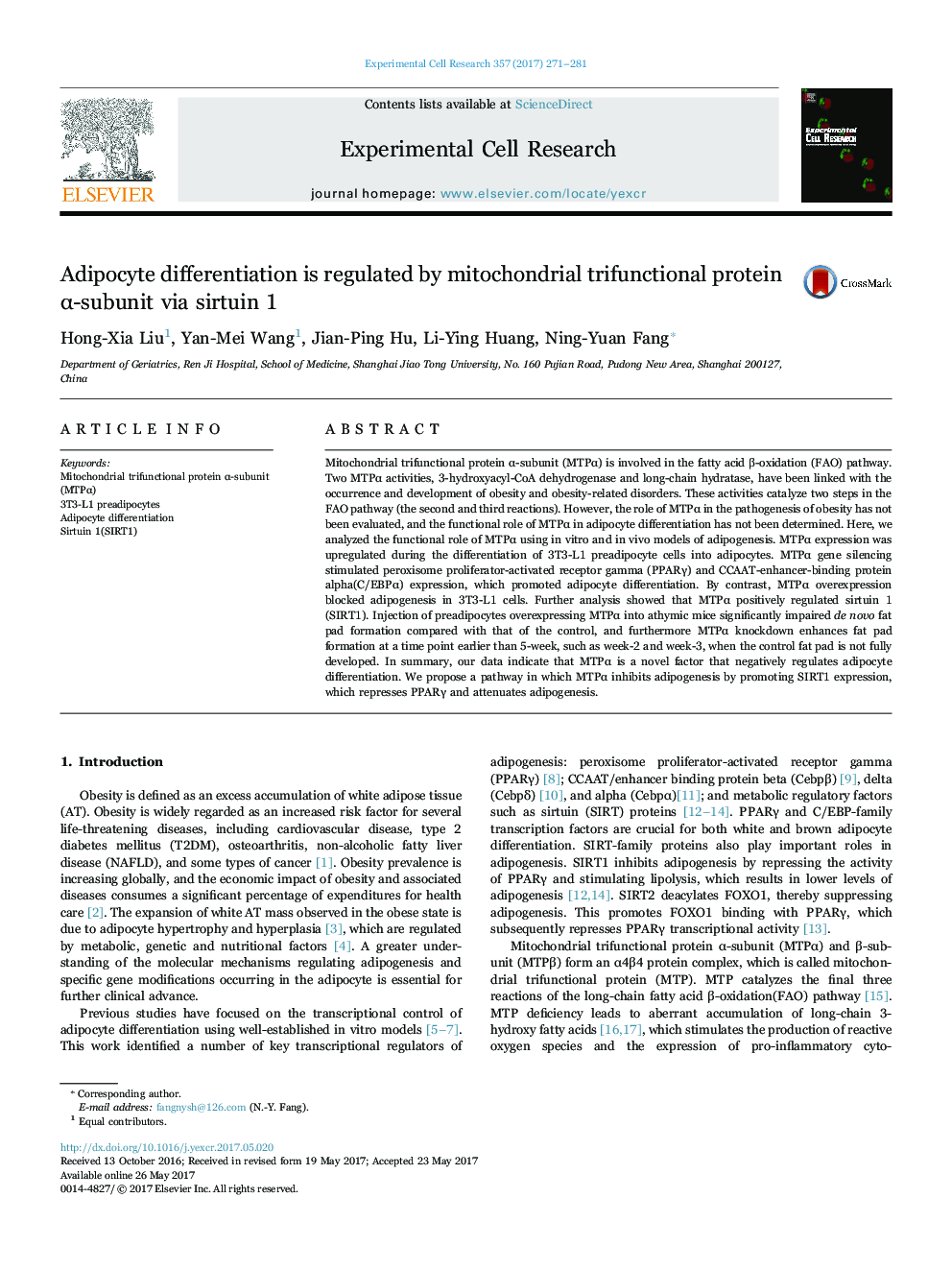| Article ID | Journal | Published Year | Pages | File Type |
|---|---|---|---|---|
| 5526911 | Experimental Cell Research | 2017 | 11 Pages |
â¢During adipocyte differentiation, the level of MTPα is obviously upregulated.â¢MTPα suppresses adipocyte differentiation by targeting SIRT1.â¢FAO may play a very small part in MTPα's regulation of adipogenesis.â¢MTPa regulates de novo adipogenesis in developing fat pads.
Mitochondrial trifunctional protein α-subunit (MTPα) is involved in the fatty acid β-oxidation (FAO) pathway. Two MTPα activities, 3-hydroxyacyl-CoA dehydrogenase and long-chain hydratase, have been linked with the occurrence and development of obesity and obesity-related disorders. These activities catalyze two steps in the FAO pathway (the second and third reactions). However, the role of MTPα in the pathogenesis of obesity has not been evaluated, and the functional role of MTPα in adipocyte differentiation has not been determined. Here, we analyzed the functional role of MTPα using in vitro and in vivo models of adipogenesis. MTPα expression was upregulated during the differentiation of 3T3-L1 preadipocyte cells into adipocytes. MTPα gene silencing stimulated peroxisome proliferator-activated receptor gamma (PPARγ) and CCAAT-enhancer-binding protein alpha(C/EBPα) expression, which promoted adipocyte differentiation. By contrast, MTPα overexpression blocked adipogenesis in 3T3-L1 cells. Further analysis showed that MTPα positively regulated sirtuin 1 (SIRT1). Injection of preadipocytes overexpressing MTPα into athymic mice significantly impaired de novo fat pad formation compared with that of the control, and furthermore MTPα knockdown enhances fat pad formation at a time point earlier than 5-week, such as week-2 and week-3, when the control fat pad is not fully developed. In summary, our data indicate that MTPα is a novel factor that negatively regulates adipocyte differentiation. We propose a pathway in which MTPα inhibits adipogenesis by promoting SIRT1 expression, which represses PPARγ and attenuates adipogenesis.
